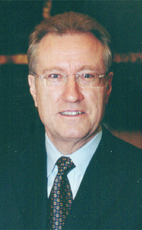Mr. Speaker, the government is committed to an intensified campaign against terrorism. We will stand with the United States and with our allies in weeding out the perpetrators and destroying their organizations wherever they may be.
It will take some time to do it. It will not be like conventional warfare at all. The kinds of assets and people necessary to do this in the military context are being reviewed and determined at this point in time.

